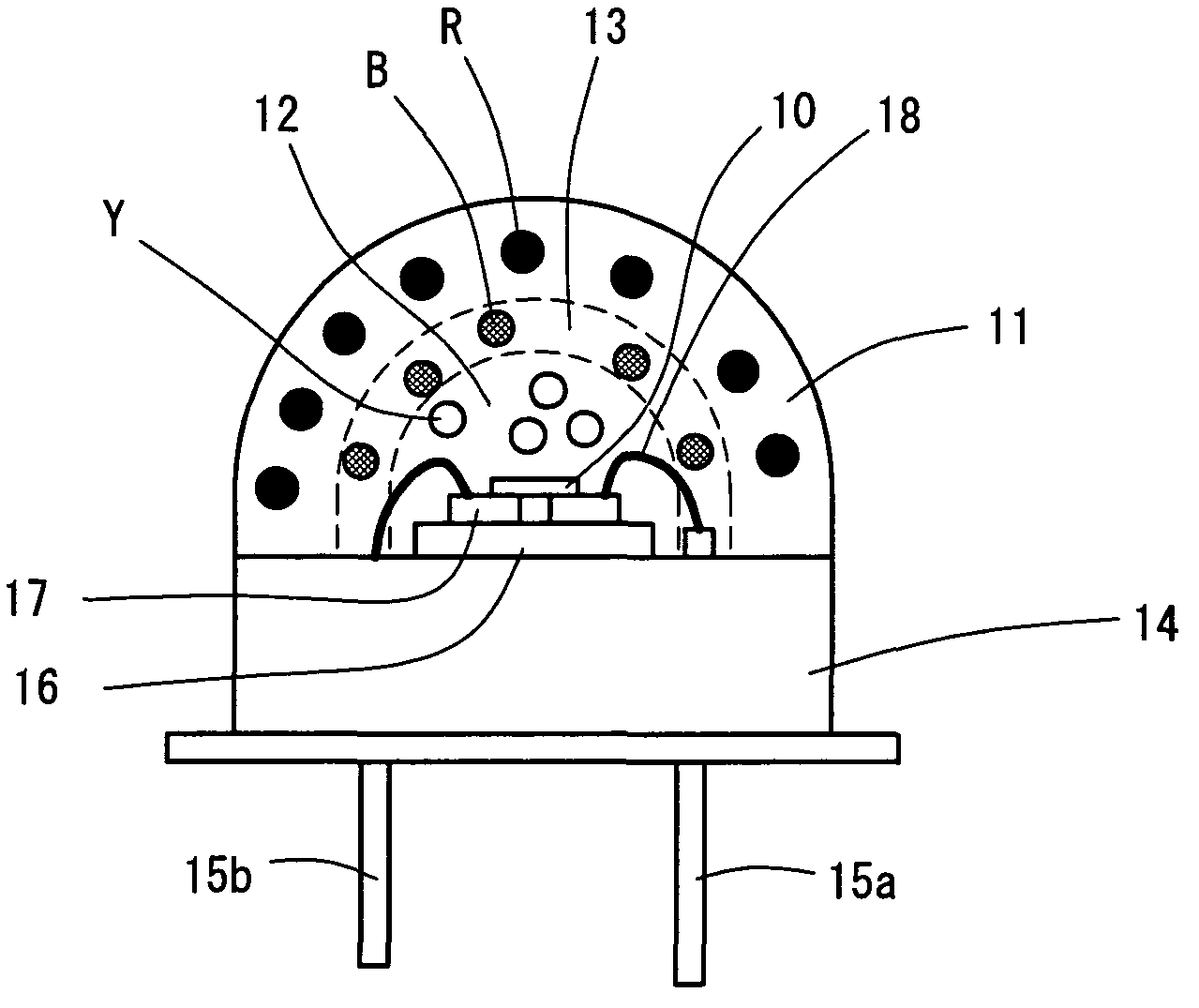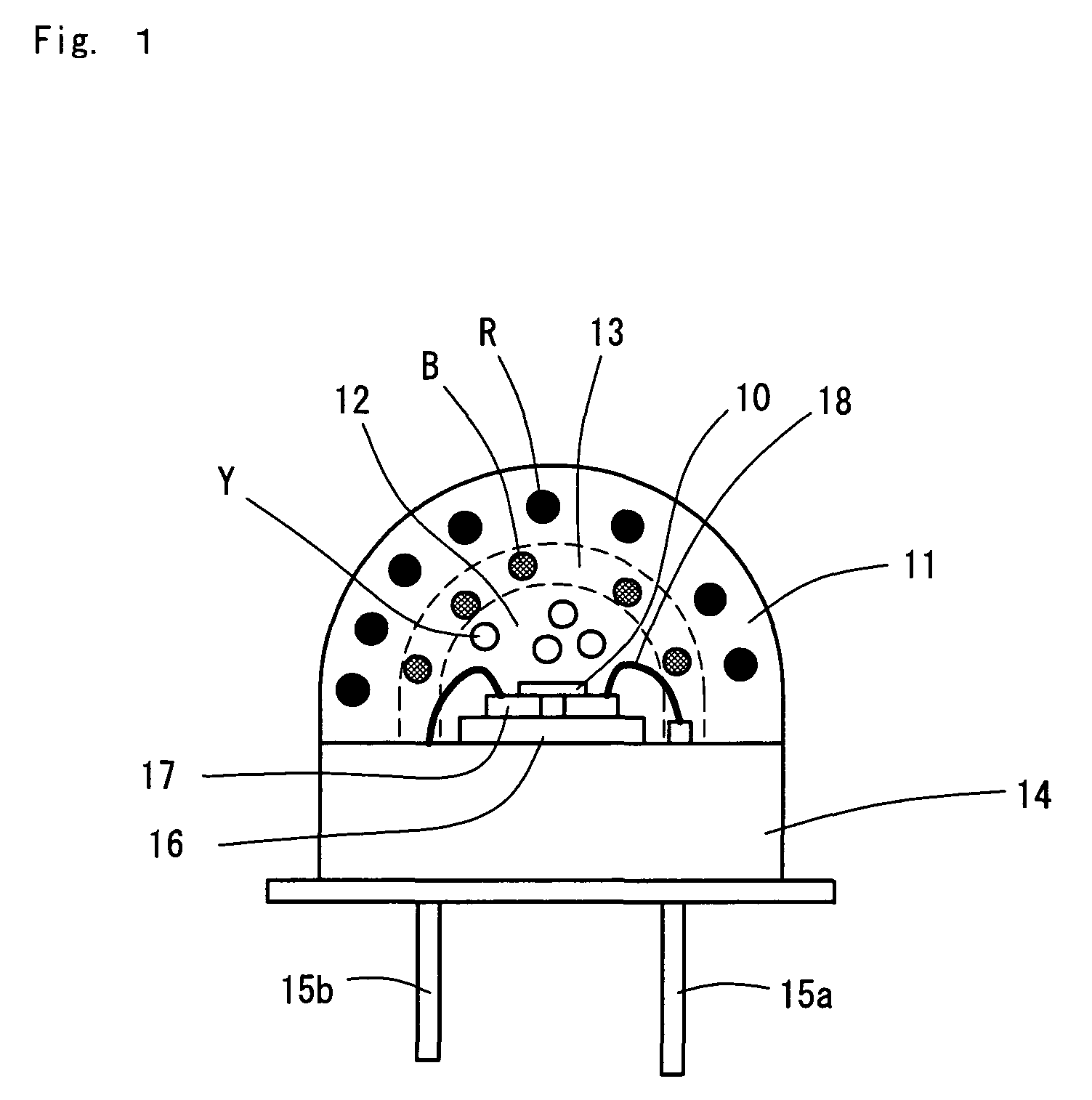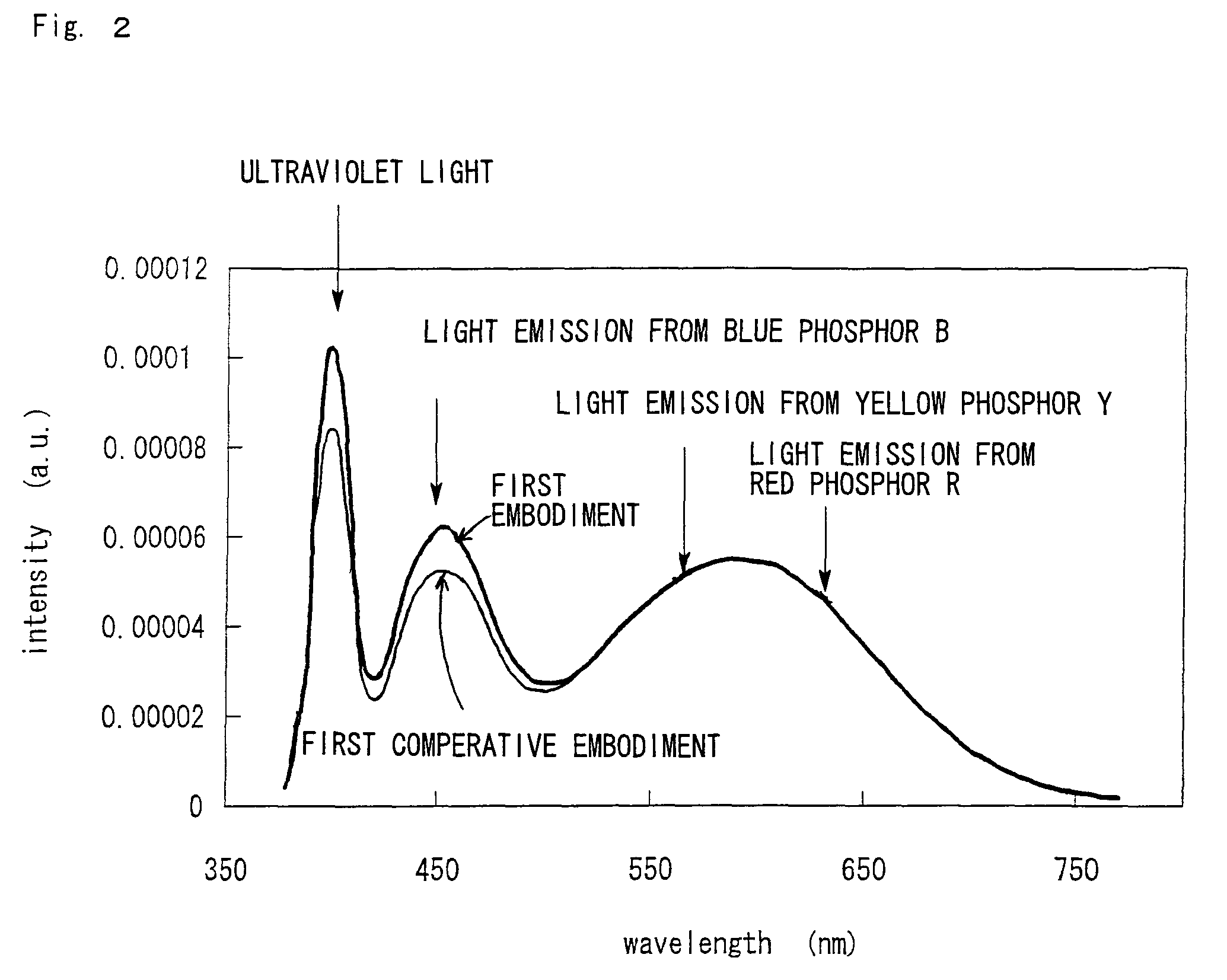Light-emitting device including light-emitting diode and stacked light-emitting phosphor layers
a technology of light-emitting diodes and phosphor layers, which is applied in the direction of solid-state devices, lighting and heating apparatuses, spectral modifiers, etc., can solve the problems of reducing conversion efficiency and other problems, and achieve high luminous efficiency, high color rendering properties, and high luminous efficiency
- Summary
- Abstract
- Description
- Claims
- Application Information
AI Technical Summary
Benefits of technology
Problems solved by technology
Method used
Image
Examples
first embodiment
[0019]FIG. 1 illustrates a structure of a light-emitting device including an LED according to a first embodiment. The light-emitting device includes an LED 10 configured to emit ultraviolet light, a red phosphor layer 11, a yellow phosphor layer 12, a blue phosphor layer 13, a metal stem 14, leads 15a and 15b, and a submount 16.
[0020]The LED 10 is a flip-chip element composed of the Group III nitride semiconductor and emits ultraviolet light having a wavelength of 395 nm. The LED 10 is mounted on the submount 16 by flip-chip bonding. Electrodes of the LED 10 are bonded to an electrode pattern 17 arranged on the submount 16 by soldering. The submount 16 is mounted on the metal stem 14. The electrode pattern on the submount 16 is connected to the leads 15a and 15b with wires 18.
[0021]The red phosphor layer 11, the yellow phosphor layer 12, and the blue phosphor layer 13 are stacked on the LED 10. The resulting stack has a dome shape. The yellow phosphor layer 12, the blue phosphor lay...
PUM
 Login to View More
Login to View More Abstract
Description
Claims
Application Information
 Login to View More
Login to View More - R&D
- Intellectual Property
- Life Sciences
- Materials
- Tech Scout
- Unparalleled Data Quality
- Higher Quality Content
- 60% Fewer Hallucinations
Browse by: Latest US Patents, China's latest patents, Technical Efficacy Thesaurus, Application Domain, Technology Topic, Popular Technical Reports.
© 2025 PatSnap. All rights reserved.Legal|Privacy policy|Modern Slavery Act Transparency Statement|Sitemap|About US| Contact US: help@patsnap.com



